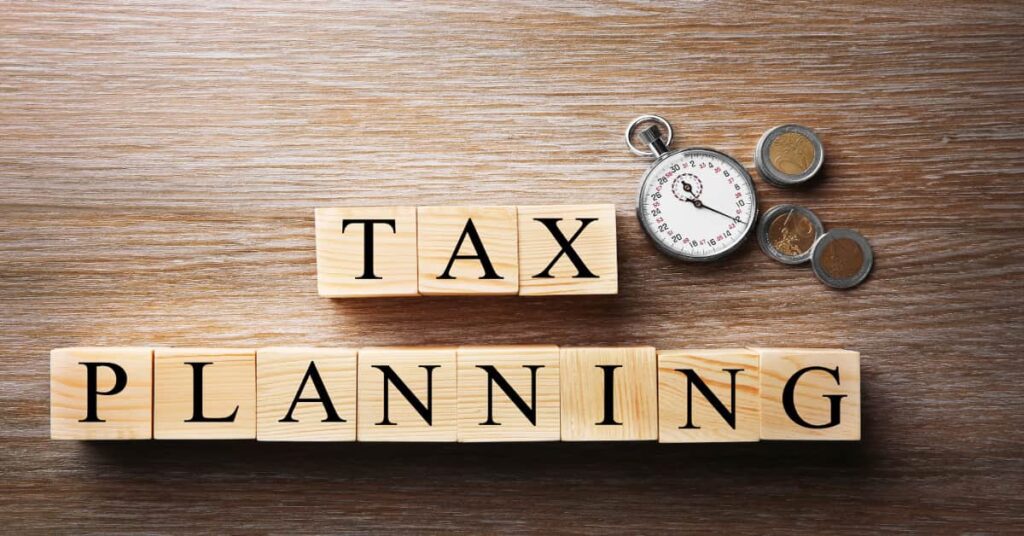Tax Planning


Income tariffs in India can be confusing. Different taxation slabs for everything. You might feel a little low when you see your spendable income after the tariff is charged.
Here are 4 ways in which you can claim deductions. Using these deduction provisions, you can reduce your taxable income and pay less taxation.
Benefits of Tax Planning
Tax planning is an excellent strategy to save hard-earned money through legal methods. Apart from this, there is a need for surcharge planning due to its following advantages:
- Leads to reduced tax burden: Reduction in the tariff liability or burden is the essential feature of tariff planning. Financial growth leads to growth in taxable income. But with an efficient tariff planning method, you can significantly reduce your taxable income and save your hard-earned wealth.
- Helps identify tax-efficient investment avenues: Through tariff planning, you can locate the most tax-efficient investment options and invest in them according to your needs and goals.
- Helps avoid legal complications and litigations: Tariff evasion can lead to legal complications. Also, you may end up paying more money than you avoided in the form of penalties. But tariff planning is a legal way to reduce tariff liability which saves you from tax* litigations or complications.
- Leads to productive economic growth: Businesses and salaried individuals can save their money through efficient tariff planning. The saved taxable income can be channelized into multiple investment plans leading to the economic growth of an individual. On the other hand, businesses can use the saved money to expand their business, generating more employment. This leads to the overall growth of the country’s economy.
- Helps in retirement planning: With tariff planning, it becomes easy to build enough personal finances, which also helps in creating a retirement corpus.
House rent deduction
The Income Tax Act provides a deduction on the house rent if you pay any. Usually, a lot of companies spend a House Rent Allowance (HRA) included in the salary. Now, what amount of deduction can you claim?
You can claim the least amount out of the three
- Your actual HRA Allowance received through salary
- 50% of basic pay (for metro cities) / 40% of basic pay (for non-metro cities)
- Your actual rent -10% of basic pay.
80C
Under the provision of 80C, you can claim a total deduction of 1.5 lac rupees from your taxable income. Sounds good, doesn’t it. Let’s just have a look at some things you can do to avail this.
The government has tried to encourage people to make investments through this provision.
It says that if you invest in the following ways, you can claim a deduction from the premium you pay for such investments:
Provident fund
- ELSS- Acronym for Equity-linked savings scheme, these are equity-heavy mutual funds. Herein, your invested amount gets locked in for 3 years.
- Surcharge saving fixed deposit – You can do an FD and your money gets blocked for at least 5 years.
- Home loan – If you have taken a home loan, you can claim deductions for the amount of your loan repayment installments.
- National saving certificates – With a minimum investment of 1000 rupees, you can invest in government bonds that have a minimum lock-in period of 5 years. This is done with post office banks.
80D
If you had to incur any medical expenditure, then the Income Tax Act allows you a deduction claim. If your actual expenditure was more than your medical insurance claim, then you can claim Rs.25000/- for that excess expenditure (in the case of self, spouse, and children). While you can claim an additional Rs.25000/- for your parents aged less than 60 years. If they are a senior citizen i.e., if their age is more than 60 years, you can claim a deduction for up to Rs.50000/-
80E
If you had taken a student loan, you have to pay it back along with interest once you get employed. So, in such a case, if you are repaying a loan in 8 years, you will be allowed to claim a deduction on the interest you are paying along with your loan installments.
Conclusion
With financial success comes more of the burden of paying tariffs. So, minimizing surcharge liability is essential for an individual or business to preserve wealth. With the employment of several tariff planning strategies, you not only reduce tariff liability but also save for your future and retirement. There are multiple tax-saving options available, but you must also save a life insurance plan to fulfill your financial goals and needs.
Along with the life cover and financial security, you benefit from a reduction in surcharge liability where you can avail of a tariff deduction on premiums paid up to Rs.1.5 Lakh u/s 80C of the Indian Income Tax Act. Also, the death benefit is tax-exempt under Section 10(10D).
